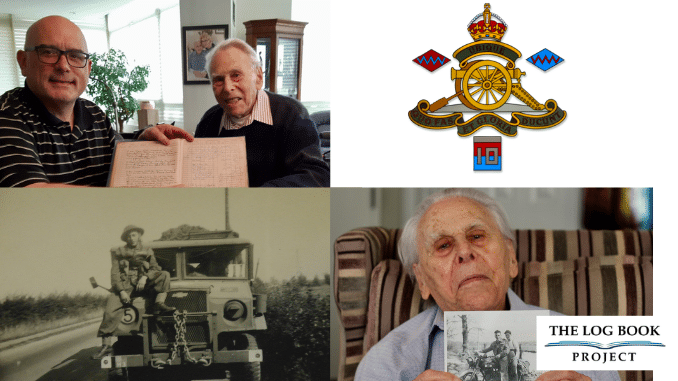
Born November 7, 1917 Mr. Irwin Lorne Winer remembered life in the downtown slum of Toronto known as the Ward where he came of age during the depths of the Great Depression.
Growing up in a Jewish neighborhood he experienced the antisemitism that was prevalent in interwar Toronto. Aware of the realities in Europe as his parents had fled the pogroms a generation before, Winer therefore enlisted shortly after the war broke out.
After initial training and an overseas journey that he characterized as utterly miserable, Winer ended up in England in 1940. He would go on to spend the rest of the war overseas, which he would later characterize as “five lost years”.
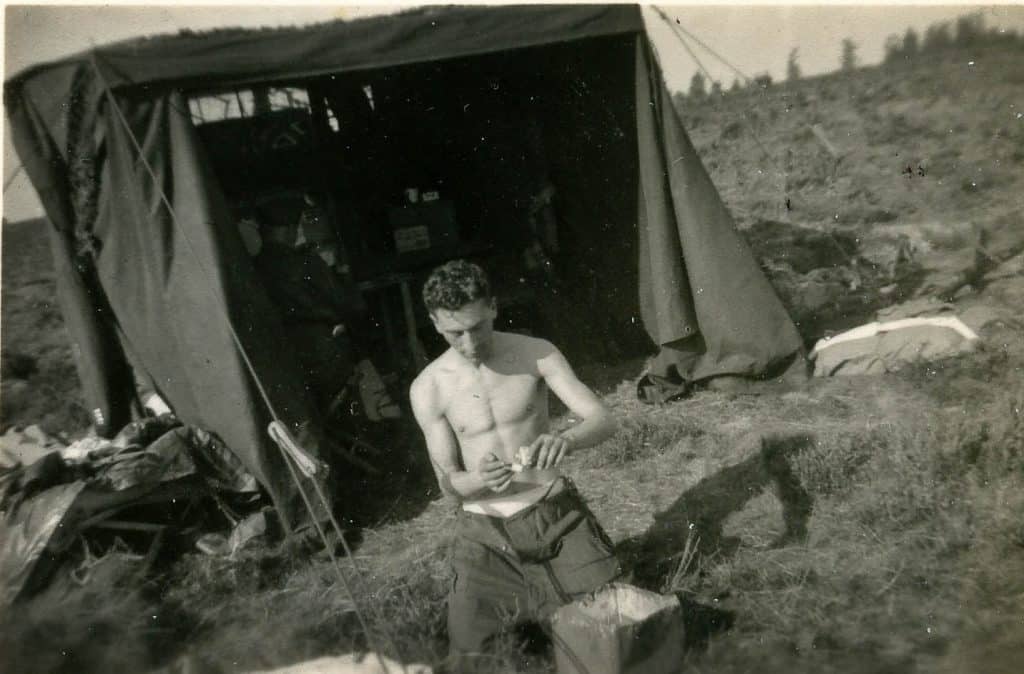
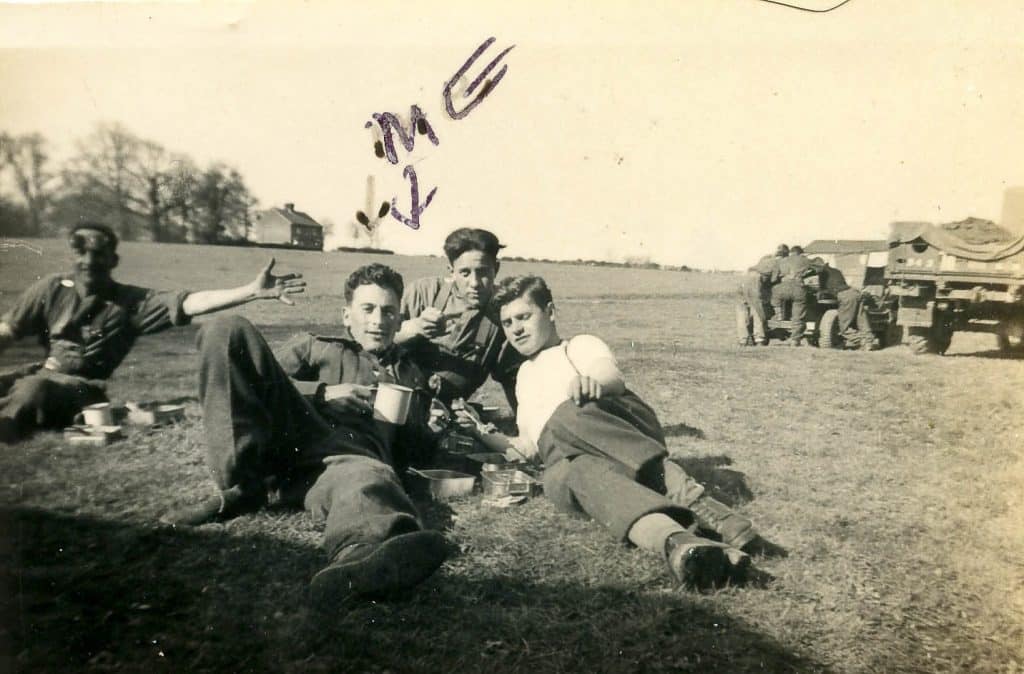
Through the war Winer would serve with both the 1st and 2nd Canadian Survey Regiments, Royal Canadian Artillery. The survey regiments were tasked with compiling information to ensure the artillery was properly calibrated to ensure accuracy and avoid instances of friendly fire.[3](2022). Irvin Lorne Winer. In The Canadian Encyclopedia. Retrieved from https://www.thecanadianencyclopedia.ca/en/article/mpsb-irvin-lorne-winer
While other Canadian soldiers were deployed to the Italian campaign, Winer trained and prepared for the D-Day landings. At last the 2nd Survey Regiment Royal Canadian Artillery crossed the Channel as part of II Canadian Corps.
Landing on Juno beach D+30 Winer recalls being able to step ashore from the LST without getting his feet wet. Another recollection was the horrific smell of death from the decomposing dead bodies and cattle, a smell that lasted and lingered in his nose for years.
One of the main jobs of the Survey Regiment was counter-battery: the idea was to bring down their own artillery onto the location where German guns were firing from. This had to be done within minutes of detection and was aimed to obliterate a killing area of about half a mile square.
On occasion the aftermath would be evaluated once the enemy had retreated from the area. The devastation would be massive and judging by the amount of smashed German artillery equipment and dead, they would have known they were “spot on”.
As a Jewish soldier he encountered several instances of antisemitism throughout his time overseas. One notable instance occurred early 1944 during training in England when a lower-ranked man from another battery came over to look at him. The man was from a small town in Ontario
“He said, ‘I was told there was a Jewish sergeant up at the regimental headquarters and I can’t
Double Threat: Canadian Jews, the Military, and World War II – page 116
believe it’,” Winer recounted. The man, who had never seen a Jew, had expected the “hooked nose and horns” he thought all Jews had.
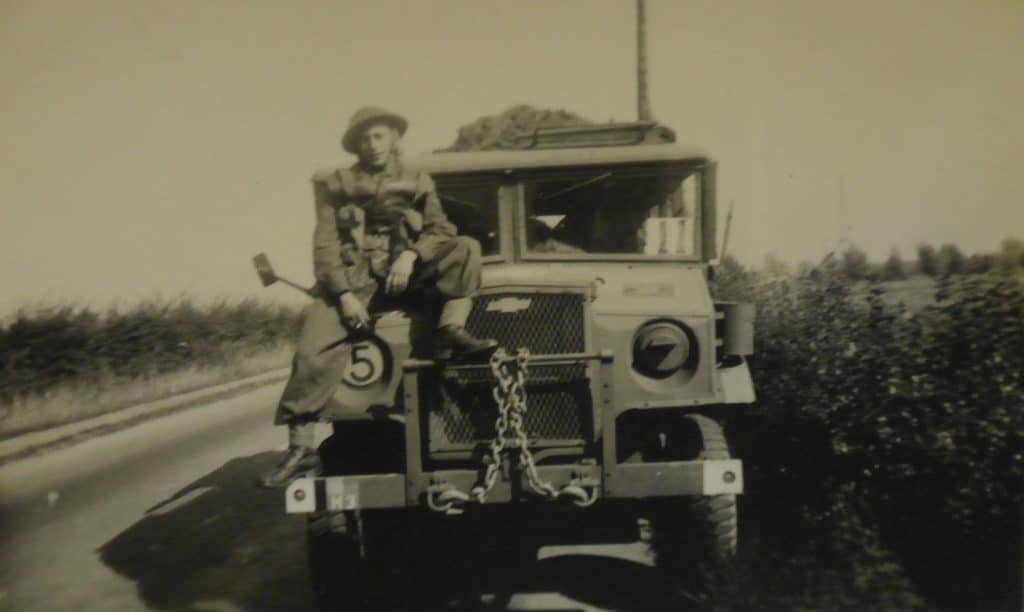
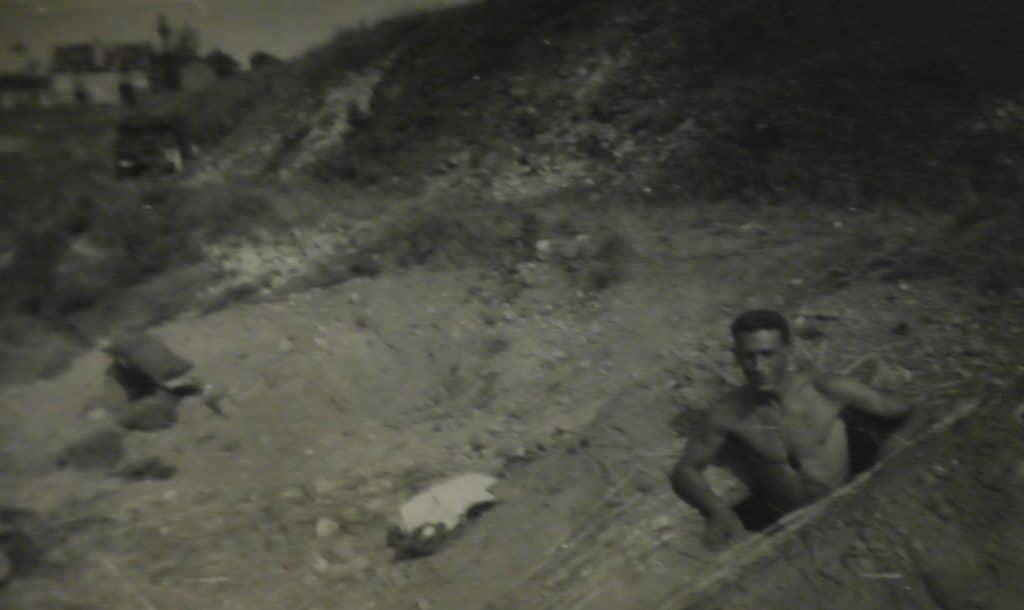
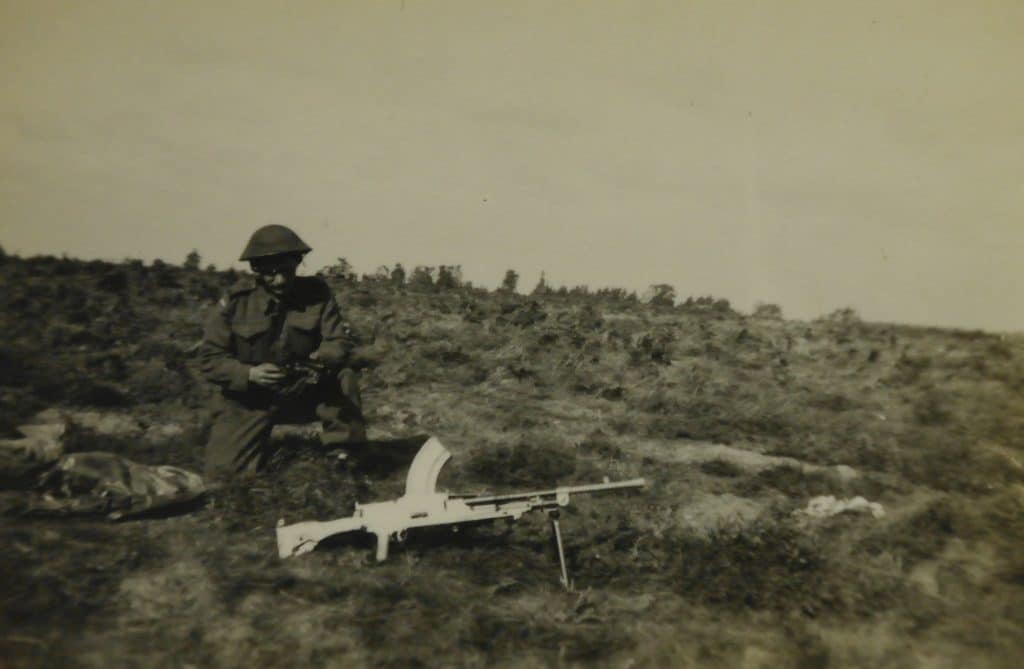
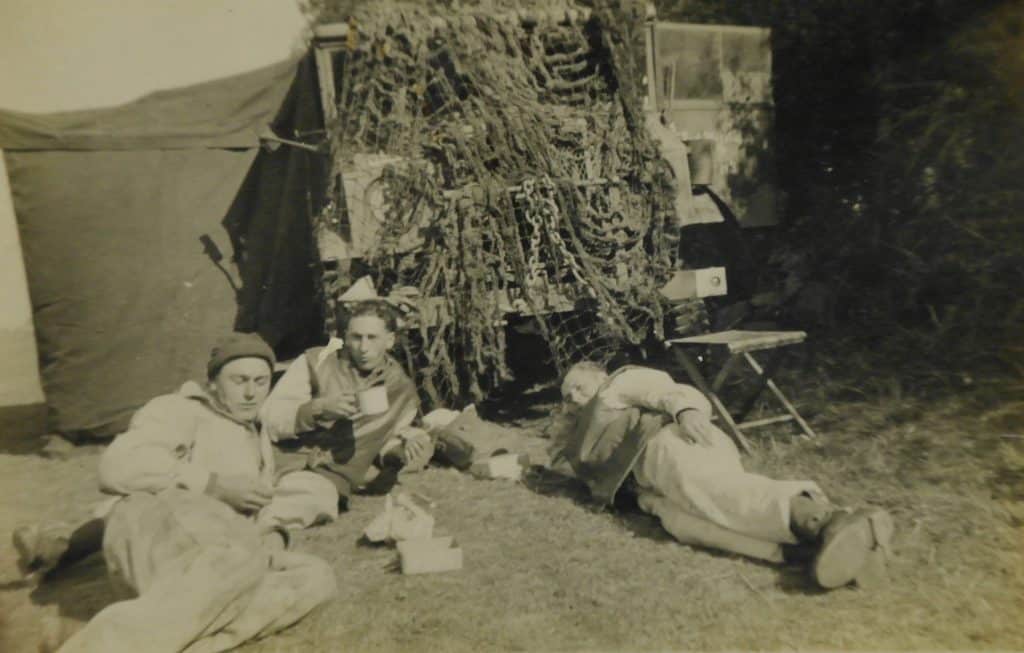
Winer would fight his way through Normandy, and into Belgium and the Netherlands where he gained fond memories of the Dutch people.
After VE-Day Winer’s unit was disbanded at Zeist in Holland, but like many thousands of servicemen and -women, he would have to wait months to return home. While waiting his turn Winer was sent to a new posting with the Canadian Occupation Force in Europe.
Eventually he was able to return home to Canada where another fight started after his discharge. Winer suffered for years from what we now call post-traumatic stress disorder. A sudden noise, like a backfiring car, would trigger him to yell ‘Get down! Get down!’. It would take him many years to understand his condition before truly settling down back in Toronto.
Winer devoted much of his time to telling young people about his war experiences. His engagement with Crestwood Oral History Project and the school’s pupils is a true testament to his unwavering devotion.
In recognition of his contribution to the liberation of France Winer was in 2016 issued with the country’s highest honour, the Légion d’honneur.[8]Double Threat: Canadian Jews, the Military, and World War II 1988326044, 978-1988326047
On 22 May 2022 the project was honoured by the signature of Mr Winer facilitated by Mr Scott Masters of Crestwood OHP.
Mr Winer’s entry in the logbook aided by his wife includes the following:
Powerful memory from Normandy, Rabbis performing for Jewish soldiers and survivors come out of hiding.
The event Winer is referring to is one where he attended a Canadian-led memorial service for Allied Jewish soldiers who had been killed in Normandy. The event was being held near a Jewish cemetery in the ruins of Caen. Winer said that Rabbi David Monson gathered the men in the only building left standing. Memorial candles were lit and Winer joined a group of heavily armed American Jewish paratroopers in reciting the prayers.
A few minutes into the service several emaciated figures emerged from behind a wall. It turns out they were Jewish survivors having been in hiding for several years… now stunned but thrilled at the sight of Jewish servicemen… it became an emotional liberation.[9]Double Threat: Canadian Jews, the Military, and World War II – page 200
This profile is in large parts copied and developed from its original as published on the website of Crestwood Preparatory College, we are forever indebted to Mr Scott Masters and his students.
It was with great sadness we received the news of of Mr Irvin Lorne Winer’s passing on 23 May 2023, almost to the day one year after his entry in the log book.
May he rest in perfect peace.
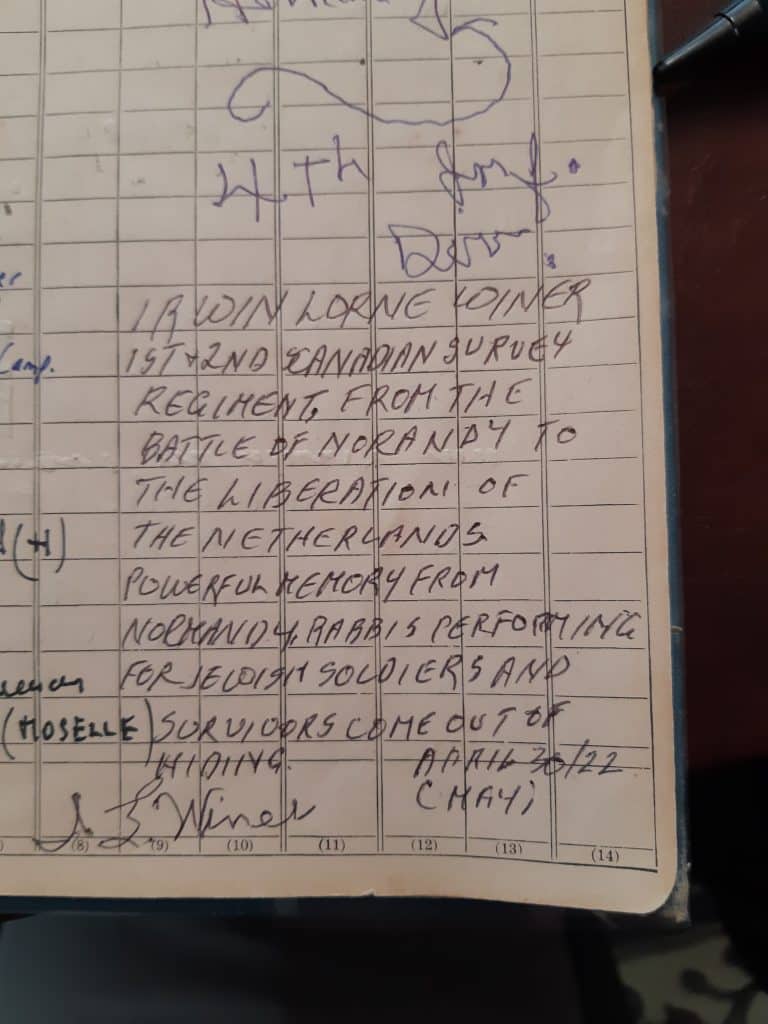
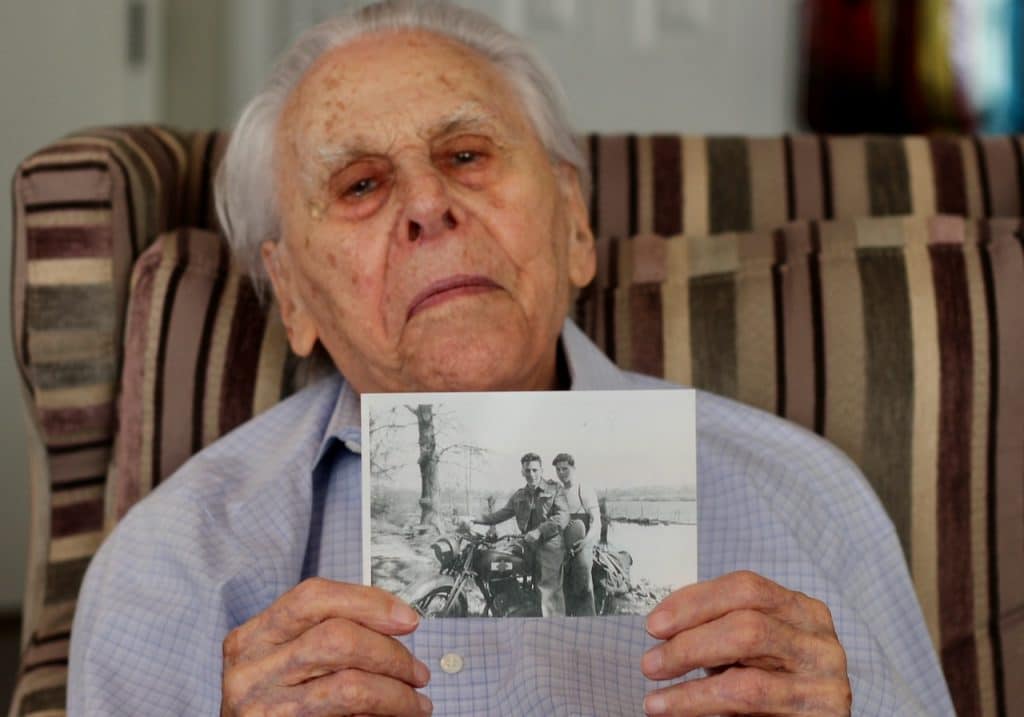
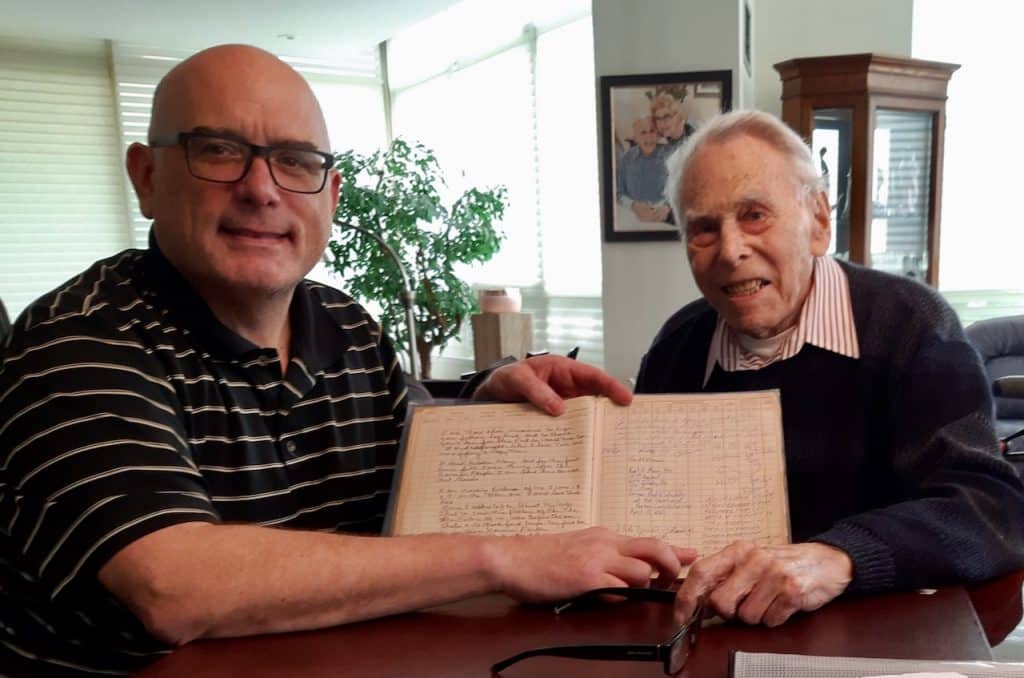
References



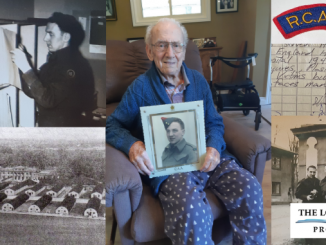
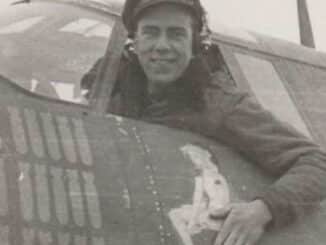

Be the first to comment